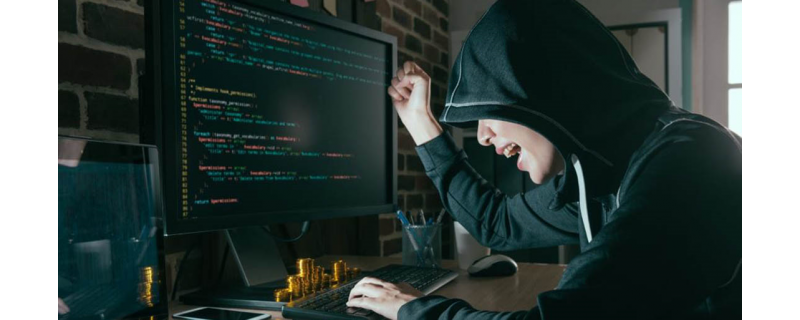Today, cryptocurrencies are a very attractive investment tool. Digital assets have taken pride of place in the portfolios of both private and institutional investors, along with stocks, bonds, precious metals and fiat. However, not every cryptocurrency owner wants to understand the intricacies of this market. Some people are only interested in the final profit, but not in the process of obtaining it. Therefore, the service of trust management of a cryptocurrency portfolio has become very popular. The owners of such startups promise their clients high profitability and minimization of risks. But is it really worth trusting your funds to anyone? How safe is it, and how not to run into scammers? With these questions, we turned to experts in order to analyze in more detail all the intricacies of trust management of cryptoassets.
The risks of trust management of cryptocurrencies
The cryptocurrency sphere itself is associated with high risks. It does not matter whether it is mining, trading or profitable farming. The high volatility of cryptocurrencies is accompanied by sharp fluctuations in the exchange rate, which can lead to huge losses of funds. It is logical that investors would like to minimize risks as much as possible, and therefore, not having sufficient knowledge about trading, they consider it reasonable to entrust their funds to so-called professionals. It would seem that there is no need to wait for a catch here, because a person who receives a cryptocurrency in management should be interested in increasing the client’s capital, since his income depends on it. But in reality, not everything is so simple.
To understand everything in more detail, we asked experts how safe it is to trust third parties to manage your funds and what risks there may be. Do people and companies providing such services give any guarantees to customers?
Marat Mynbaev, investor, expert in fundamental and technical analysis, Founder of Amir Wallet, answers the question as follows,
“Risks are always present. It's a matter of risk management. A person has labor, reputational and investment income. When you choose an investment instrument, you must clearly understand all the features of this instrument. When a person decides to become an investor, he must understand that there are always risks everywhere. You can only control them. Just like if it's raining outside, you can take an umbrella, but that doesn't give you a 100% guarantee that you won't get wet at all. The same is true in the cryptocurrency business. You must take responsibility. Blockchain distributes risk.”
Dmitry Noskov, an expert at the StormGain crypto exchange, advises against taking risks by trusting your funds to third parties, saying,
“Trusting your funds to third parties is, of course, always a risk. But at the same time, if you yourself are not particularly versed in cryptocurrencies, then there is a chance that others will do it better (if you are confident in the professionalism of those you trust). You can’t really count on any guarantees in this regard, because the cryptocurrency market is not the place where you can get guarantees. After all, it is not regulated by law in most countries. That is, if you lose your money, you cannot apply to law enforcement agencies with a claim.”
Igor Zakharov, the Manager of the DBX Digital Ecosystem, believes that funds can only be safely trusted by proven portfolio managers. Any investment activity involves the risk of losing capital. The task of professionals is to minimize risk and ensure profitability. Companies usually do not give 100% guarantees of income, but based on the statistics of their work, funds may give a “conditional guarantee”. If, for example, the fund consistently produces a 10% return, then the fund may call the 3% return “conditionally guaranteed”. By artificially lowering the average rate of 10%, less profitable months or times when the markets have uncertainty and do not provide an opportunity to earn are also taken into account.
Dmitry Kudinov, the Operations Manager of EMCD, the largest mining pool in Eastern Europe, a specialist in the field of mining digital assets, notes that the situation with trust management is not an easy one even in the stock market, which is more than one hundred years old. The expert adds,
“Transferring your assets to third parties is always associated with a high risk, so I would recommend doing this only if there is no alternative. I will immediately explain that real and competent trustees cannot and will not give any specific figures and promises. Their primary task is to save capital from depreciation, and their secondary task is to earn.”
Analyst Aziz Kenzhaev says,
“So many examples, good and bad, are associated with this term. There are more bad ones, of course. And calls with offers of such services become more frequent precisely in moments of crisis, which is important, so be vigilant. Remember that no company providing trust management can a priori issue guarantees for the preservation of your funds if it is not registered in the register of trustees of the Central Bank. Considering the fact that according to the law you cannot receive such guarantees, then there is a risk, respectively, of losing all the funds that will go to the broker, and the broker will share them with the very manager who took these funds from you.”
Danatar Atajanov, Brand-manager OXLY.IO, believes that the level of security of investing in cryptocurrency is based on the level of competence of the investor himself. If a person does not trust himself as a specialist in cryptocurrencies, then it would certainly be safer to turn to a professional. An experienced expert is likely to make better use of the funds. This is the first basic level of security. In order to soberly assess your capabilities, you need to clearly see the risks and dangers on your way. To begin with, it is choosing an asset, a successful purchase and ensuring safe storage. If the investor cannot cope with the first steps on his own, it is better to trust professionals.

An investor may face a number of insurmountable obstacles in the form of a lack of skills to find and identify reliable resources for buying, exchanging and storing cryptocurrency. This path may be associated with the risks of losing your investments by contacting scammers or scam projects or phishing sites. For an inexperienced investor, there is a possibility of losing part of the funds on high fees and commissions of dishonest services. And this is just the first step.
There are even more risks in the cryptocurrency sphere than in traditional finance. The most typical are, for example, market risks, such as volatility. Or take legal risks. Today, no one fully knows how cryptocurrencies will be regulated, not only in Russia, but also all over the world. These processes are in constant evolution. Other risks are associated with the activities of people or companies to whom the investor entrusts his funds: for example, if unprofitable assets were chosen, or the portfolio was unbalanced, or the wrong time was chosen for transactions. There are no guarantees against most of these risks, and this must be immediately taken into account. It should be understood that if someone promises complete security, most likely, they want to deceive.
Victoria Ustimenko, CEO of PRETOBUSINESS PR agency, says about the risks associated with trust management,
“If we talk about the forex market and the classic investment market, then it is largely associated with the possession of information about wars, crops, legislation, bankruptcies, etc. There is an opinion of a number of forex traders that algorithms are imperfect, and to invent artificial intelligence able to accurately predict stock prices or crypto coins has not been possible, although developments are underway. In all other respects, it is still a high-risk instrument, and in my experience, not a single asset management company or trader has given guarantees to its clients and is unlikely to give. People make mistakes, so I would not recommend giving your last money to such games. However, as part of an investment program, crypto assets are an attractive tool.”
Independent financial expert Alexander Ryabinin spoke very sharply about the idea of transferring funds to management, saying,
“Oh no, it's a bad idea to trust someone to manage your funds. If only to funds or experts. Even funds don't make any guarantees, so you should consider very cautiously when you're told a 100 per cent sure option. The risks in this are 99.9%. They can even send this money to another wallet and you will not prove anything.”
Vladimir Gorgadze, head of the Blockchain master's program at MIPT, head of tokenization projects at MMC Norilsk Nickel, head of the Newity blockchain solutions developer, believes that entrusting his crypto assets, as well as familiar financial assets to management by third parties is a process that can be unsafe and does not imply a 100% guarantee of safety.
Among the risks, the expert singled out both the cryptocurrency market itself and the actions of those who manage assets. Funds may fail to pick a good portfolio of assets, as previous upswings in a particular currency or token do not guarantee continued success. An unsuccessful investment and trading strategy may be chosen. Managers may be chaotic, unprofessional, or even fraudulent.
According to the expert, some guarantee for such investments can be the size of the funds, the set of their licenses and their reputation in the market. Reputation and licensing are valuable assets for the investment business of funds. They are difficult to earn and easy to lose, so funds tend to value these assets and try to act optimally for clients and for themselves.
Aaron Chomsky, head of the investment department of ICB Fund, sees the main problem of trust management in finding a worthy performer. He says,
“If we do not touch on a certain part of the formalities related specifically to cryptocurrency assets, then the transfer of money under management is a fairly standard procedure. The main problem, as usual, is to find a professional manager, and there are very few of them, and all of them, as a rule, are in business and don’t really need money, therefore they can only cooperate with clients they like. After all, a large number of clients tend to constantly interfere in the process and with the work of a professional, so if a competent manager and an understanding investor find each other, then this bundle will last a long time.
“So, as a result, the chances of running into a person who knows how to speak beautifully and describe great prospects, but at the same time does not know how to work with money, are extremely high. And if we are talking about such a hype direction as cryptocurrencies, where the institution of reputation has not yet been formed and there are no licensing and regulations, then the probability of meeting a layman tends to 100%.”
Vladislav Akeliev, Development Director of the ECOS cryptocurrency investment platform, agrees that it is very dangerous to trust your funds to manage third parties, as there are a lot of scammers in this area. The risks can be varied, from poor management, which leads to a fall in the value of assets, to the deliberate deception of a client and theft of his funds. Guarantees can only be given by official documents and only they should be trusted when choosing the performer.
Gleb Jount, the official representative of the Bitget exchange in the CIS, also emphasizes that trusting your capital under someone else's management always carries certain risks, although they can be minimized. The expert explained it with an example, saying,
“Large funds have a clear risk management policy, they are unlikely to burn your balance, and besides, large funds comply with legislative requests. While funds and third parties can legally guarantee the overall safety of your funds, no one can guarantee you future profits.”
Dmitry Chernov, CEO at Armacoin Ltd, says quite skeptically about trust management,
“For me, this is a complete analogy of privateers who used to raise money on bets, and now they are raising money for investments in NFTs and cryptocurrencies. Especially the people’s promises to earn 200–1000% per day are hilarious. I have also received similar offers. Usually I ask them all the same question and wait for a reasonable answer, but so far I have not received an answer. My question is directly related to the external American debt, it is about 30 trillion dollars, so why doesn’t Biden (seeing a unique investment and profit program) invest at least 3 billion in this company and exit in a few days already with complete closure of US external debt?”
How to choose a crypto portfolio trust professional
No matter how much it is said about risks, there will always be those people who are ready to entrust their funds to third parties for management. Everyone has different reasons: some people just don’t understand anything about crypto, but really want to make money on it, others can’t spend several hours a day monitoring charts and analyzing the situation on the market, and some people simply believe in promises of super profits and dream of making a big profit.

However, if you trust your funds in management, then you need to at least carefully select performers. As noted above, there are a huge number of scammers in this area. However, there are also private organizations that not only did not bankrupt their clients but also fulfilled their promises and increased their capital. We asked experts what criteria should be used to select potential managers to whom they were going to entrust their cryptocurrency portfolio, as well as what indicators could be used to evaluate their success.
Egor Abramov, the principal of the Fort Ross Ventures venture fund, emphasizes that trading in crypto assets differs little from trading on the stock exchange with shares, but even with currency. Therefore, the same questions can be addressed to managers of closed mutual funds and other similar investment funds. According to the expert, it is necessary to choose professional trustworthy managers who know what they are doing and have already shown some results of investing.
Igor Zakharov says,
“In short, you only need to look at the numbers. No licenses, authoritative opinions, advice, or ‘beautiful stories’ allow one to draw a conclusion about the reliability or success of the manager. When we put funds into management (yes, we do that too, don't be surprised), we look at the manager's basic numbers, for example: risk percentage, return percentage, time during which the manager has been successful, maximum drawdown level, etc. We consider stability to be the most important of all indicators. All these figures reveal the investment system of the manager and, importantly, his control over emotions.”
Yaroslav Yarutin, a lawyer in international law, orientalist-sinologist, crypto enthusiast, takes a clear position that it is extremely unsafe to trust third parties to manage savings, especially in the form of cryptocurrency. But to those who nevertheless decided to take such risks, he gave some practical advice:
- Try to provide yourself with data about the person to whom you are transferring the cryptocurrency. Protecting the rights of the victim and searching for the stolen cryptocurrency is extremely difficult in conditions where the persons who stole it are not identified.
- You should definitely conduct basic due diligence: look at the company's website, its legal address (if the company is really there), find the previous company names and read reviews.
- It is important to closely monitor compliance with all terms of the agreement by the counterparty. The “red flags” here may be urgent demands to increase investments, requests for a deferral for the payment of returns, as well as a lack of reporting.
- Last and most important. If you admit that you have fallen into the networks of scammers, it is worth contacting a lawyer whom you trust and who has an understanding of cryptocurrency topics (this is a very important condition) and share your concerns with him (or her). If this is a real lawyer, then you can be sure that your enquiry will remain secret.
Aziz Kenzhaev also highlights the points that should be emphasized when choosing a person or company to whom you are going to transfer your funds for managing. He says,
“If we talk about the cryptocurrency market, it is necessary for a company or person to provide a report on previous transactions, request feedback and data on current open positions and daily analysis. Competent and self-confident managers will share those. And if your request is handled as an objection, then you should be wary. Ask for all the data of the legal entity, its licenses, or passport data if you are dealing with a private person. Finally, demand a contract in which your guarantees and obligations will be clearly indicated, as well as the maximum drawdown for the portfolio. If it is not there or it is 100% or even 90%, then you are clearly dealing with scammers.”
Danatar Atajanov notes that this market is just beginning to form, and such a criterion as the long-term operation of the company on the market may not be the most indicative. Although, if the company has been successfully operating for several years, this is rather a positive characteristic.
According to the expert, to begin with, you should look at what the applicant company promises you. If you are promised complete security and fabulous dividends, most likely you will be deceived. A normal partner always openly warns about the risks. For stable companies in this market, reputation is very important, and it costs more than a momentary profit. There are many ways to check a reputation. It is worth doing your own open source analysis. These can be publications and mentions in the press, communities and reviews on social networks, the availability of information about the founders and their experience on the company's information resources, etc.
Another important point: considering that the regulation of cryptocurrencies in almost all developed jurisdictions implies mandatory AML / KYC procedures, it is worth paying attention to the fact that the company has its own certified specialists in this area. And if they are ready to accept your assets “just like that”, this should alert you.
Marat Mynbaev also gave some advice to crypto enthusiasts,
“You need to collect as much information as possible about the company to which you are going to give your money in trust. Read, ask questions, communicate with company representatives. Do not be afraid to be intrusive, because you should know everything about this company. Make a list of criteria that is important for you to see in the management company.”

Victoria Ustimenko says,
“It all depends on the amount of investment. However, a big name of the company is not a proof that in your case trading operations will be successful. As in life and in business, every time you confirm your status and level as a professional.”
Vladislav Akeliev highlights several key points that should be taken into account when transferring funds to third parties for management:
- First, if you are guaranteed any profitability, then most likely they are scammers. No one on the market knows what will happen to this or that asset, and if they knew, they would definitely not tell anyone about it and make money themselves. Asset management is dealing with probabilities and risks in accordance with the client's goals. There can be no guarantees here, as too many factors affect the final result.
- Second, you need to check the availability of official documents confirming that the company can provide financial services. And after checking their availability, you need to check the authenticity of these documents.
- Third, you need to read the reviews on the Internet, as well as try to find the company's subscribers in social networks through their communities and learn from them about their work experience. Yes, it can be inconvenient, but your capital is at stake.
Dmitry Chernov says,
“Any successful success can be rigged…. Which, by the way, many do. In general, when someone boasts about how much he has earned, it always arouses suspicion. Money loves silence and no one with decent earnings will reveal their secrets.”
Alexander Ryabinin comments,
“If you have decided to do it, then you should choose funds or real experts, selecting by openness and results. Results in the past do not give guarantees for the future, but it will become clear how much profit and what risks a person / fund can work with.”
Dmitry Kudinov notes that there are practically no players on the crypto market that provide trust management services. The largest and oldest banks, such as JPMorgan Chase, Goldman Sachs and others, are just starting to work with digital assets. Moreover, they work with cryptocurrencies not directly, but through partners. Everyone has their own parameters by which you can determine the qualifications of the manager. But the main factor is the ability to manage assets. The manager must have his own (not corporate) successful investment portfolio. A successful portfolio means making a profit (albeit a small one) over a long period of 4–5 years or more. This is a mandatory portfolio of the manager, which shows his ability to give a stable result in different market cycles (active growth / lateral movements and collapses).
Dmitry Noskov identifies the following criteria for reliable prospects who can be entrusted with the management of a crypto portfolio. He says,
“This should be a company with experience in the market, with successfully completed transactions (all such information should be publicly available) and with professional traders in its staff. It must have a sufficient number of satisfied customers who invest real money on the Internet. Such a company should have a well-made website with technical analysis tools, analytics and a user-friendly interface.”
Vladimir Gorgadze gives a number of important criteria that should be taken into account when transferring your cryptocurrency portfolio to third parties. He says,
“Experience in the market, reputation or trust rating, volume of assets, licenses, professionalism of the team, the publicity of its members, for example, in social networks or the media, and, of course, the history of successful management of third-party assets, which is verified by checking the growth of investment portfolios in recent years, are important. This does not give a 100% guarantee, but it helps to reduce risks if third parties are involved in the management of your assets.”
Gleb Jount notes that, first of all, it is worth relying on and keeping in mind the public reputation and respectability of the applicants. It is also important to obtain and evaluate evidence of practical investment or trading success on trades. This applies to activity in the markets of different stages, in flat, falling and growth. Of course, personal communication is important.
The expert adds that in order to facilitate trust management schemes, some trading platforms in the crypto industry already have built-in functionality. Historical trade statistics are visible directly on the platform and on individual trader profile pages. But it is important to remember that past historical data should not be taken as a reinforced concrete guarantee of future success.














